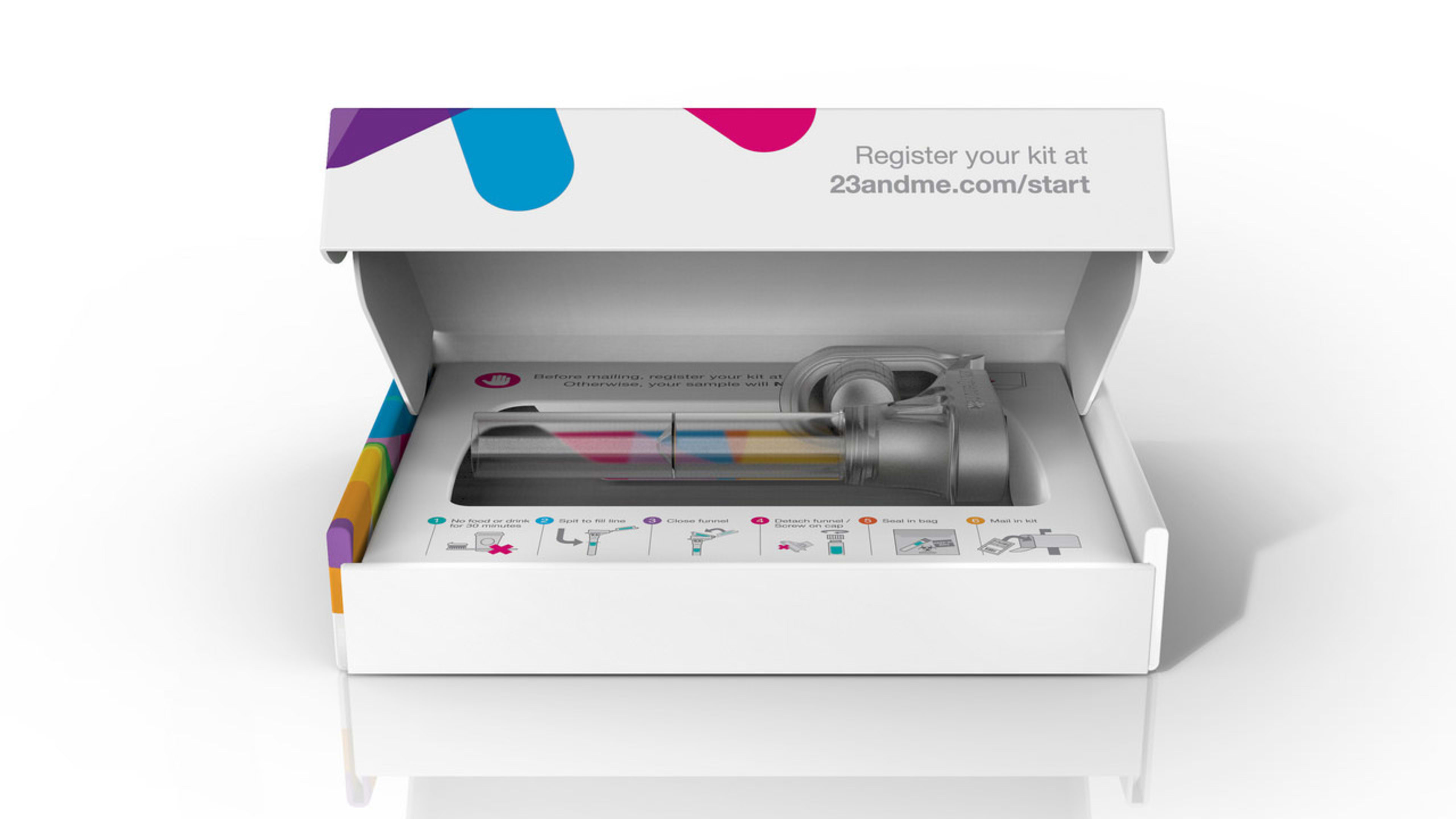Anne Wojcicki is the first to admit that she has tunnel vision. The battle-weary CEO of 23andMe knows exactly where her company needs to be in the next five years.
“I will not sleep until the primary content is back on our site,” says Wojcicki at the Future of Genomics Conference in San Diego. I spoke with Wojcicki shortly after she addressed a roomful of doctors and geneticists. She immediately got comfortable, curling up on the couch and digging into a protein bar.

At medical conferences like this one, Wojcicki is often held up as the poster child for how challenging it is to innovate in health care. She doesn’t resist this label, and speaks frankly about her mistakes. But she remains confident about the future, both of 23andMe and the nascent field of direct-to-consumer genetics. “We want to show that there is a path forward, both for us and for others,” she says.
In November of 2013, the U.S. Food and Drug Administration publicly ordered 23andMe to cease sales and marketing of its test. Regulators feared that consumers would misinterpret the test results and press for unnecessary procedures. 23andMe had offered “health reports on 254 diseases and conditions,” including diabetes and cancer, in exchange for a spit sample.
In the aftermath of the crackdown, Wojckci faced immense pressure to pivot away from the direct-to-consumer model. Most test makers evade the watchful gaze of federal regulators by requiring a doctor’s prescription. But Wojcicki advocates for consumers to have direct access to their health information. “If you pay for the test, you will be more proactive about your health,” she says.
But medical experts are far from convinced. At one point during her panel, a member of the audience accused Wojcicki of wasting valuable time and resources. Some doctors believe that consumers aren’t equipped to handle this kind of information; others believe that this information isn’t particularly useful yet.
In October of 2015, 23andMe relaunched its service (for $199, about double the price of the previous test) with some–but not all–health reports, as well as ancestral and genealogical information. Those who opt for a test are also asked to participate in research, which might require that they fill out online health questionnaires and surveys.
I ask Wojcicki whether she feels she’s selling a substandard product. Currently, the company is releasing fun and media-friendly results, like whether you’re genetically programmed to be a morning person. But when it first launched, 23andMe was able to leverage its database to find a biomarker for Parkinson’s disease at far faster rates than the National Institutes on Health.
Wojcicki is quick to defend the current service, which includes the first FDA-approved and direct-to-consumer carrier screening test for cystic fibrosis. But she does admit that 23andMe doesn’t yet offer reports on pharmacogenetics, meaning how individuals respond to drugs based on their genetic differences, as well as disease risks.
“Once we have these things back, I will feel better,” she says.
It remains to be seen whether FDA will green-light these tests. As Robert Green, a medical geneticist at Brigham and Women’s Hospital and Harvard Medical School, noted during the conference: Some people in the health sector, including regulators, are “very concerned that there will be harm.”
For Wojcicki, it’s a foregone conclusion that 23andMe will resume its full test in a few years. The company still needs to prove to regulators that its tests are reliable, and that the average consumer can understand the results. “That actually made us better,” she explains. “We did a lot of testing to show that someone with a junior high school education could understand the tests.”
In the meantime, Wojcicki is building out new sources of potential revenue for 23andMe. The company boasts a rich reservoir of people’s medical information, including family history and disease risk, which it hopes to leverage to discover and develop new drugs. Wojcicki hopes that this “bottom up” approach to drug discovery might bring down the cost of drug development (currently it’s upwards of $3 billion.)
The company now has a scientific laboratory off-site, which is staffed by scientists drawn from biotech giants like Genentech.
The company is also building out its medical affairs team, which is working to convince health providers to see value in genetic tests. As Wojcicki explains, many doctors are skeptical as they didn’t learn about genetics in medical school. One doctor stood up at a conference and told her that the problem with 23andMe is that it generates “non-billable questions.”
“Our medical affairs team speaks the language of the medical world,” she explains. “We’re trying to hold out an olive branch.”
Recognize your brand’s excellence by applying to this year’s Brands That Matter Awards before the early-rate deadline, May 3.
